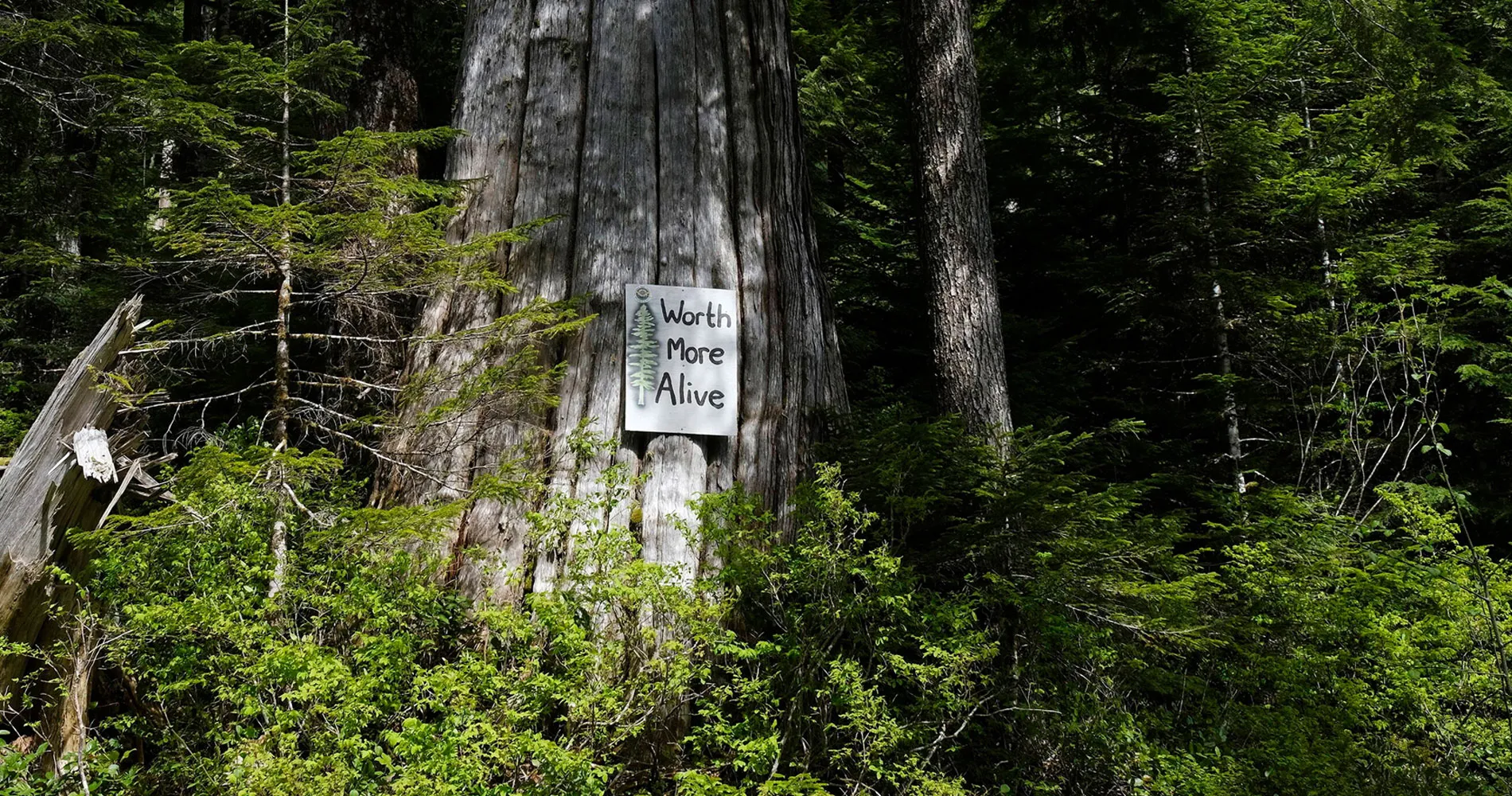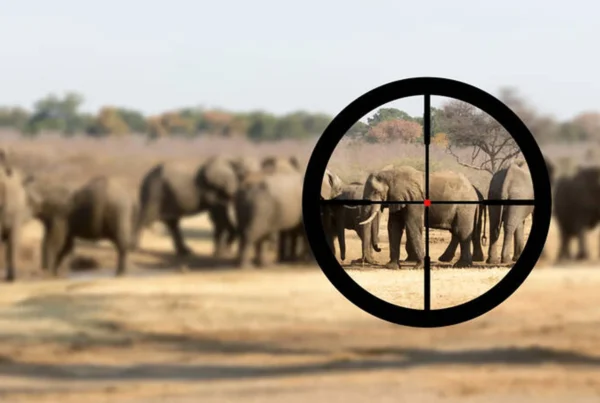Old growth forests in British Columbia and the US are under threat of extinction. The power of logging corporations and the pellet industry is erasing these ancient witnesses, some of whom are thousands of years old, from our planet. Joe Biden’s botched attempt to protect old growth and mature forests might spell the end of his climate legacy. While old growth forests are silently disappearing, they have found new allies in environmentalists, indigenous communities and the scientific community.
Silvia Caschera
6 November 2024
French version | German version
President Biden’s climate legacy is at risk. The “timber wars” of the 1970s have been reinigted. Back then old growth forests were under attack by logging companies eager to clear cut large swaths of forests for profit. According to Zack Porter, executive director of Standing Trees, a conservation group based in Vermont: “Biden needs to intervene to live up to his climate goals, because at the moment this process is going off the rails.” Since Biden took office there has been an increase in logging on federal land. The US is being criticized for not protecting its old growth forests.
Hopes that 2023 would be a pivotal year for the Biden administration’s move toward forest and climate preservation have been dashed. Although the President proposed new measures to conserve and restore around 112 million acres of American old growth and mature forests, his plans were not supported by the US Forest Service. Moreover, Conservationists argue that Biden’s plan allows too many loopholes for cutting down old growth trees. “If the Biden administration wants this process to be something more than a greenwashing exercise, then it must put stronger pressure on the Forest Service,” (Zack Porter)
Old growth are intricate ecosystems that provide essential habitats for numerous species, including endangered ones. They play a crucial role in carbon sequestration, helping to combat climate change by absorbing carbon dioxide. Additionally, these forests support indigenous communities and their culture and offer recreational opportunities that benefit the local economy.
British Columbia (B.C.) is also facing strong criticism from environmentalists and ecologists. Like the US, B.C. is home to some of the world’s most ancient and ecologically vital old growth rainforests. These forests, with their centuries-old towering trees, are now at the heart of a contentious debate over logging and environmental conservation.
Despite their ecological significance, old growth forests have been extensively logged. A 2022 paper by Ken Lertzman of Simon Fraser University found that from 1860 to 2016, 87% of logging occurred in old growth forests of British Columbia. The logging industry justifies its logging activities with job creation and economic contributions.
Yet logging old growth forests has severe environmental impacts. It reduces biodiversity, disrupts ecosystems, and releases large amounts of carbon dioxide, worsening climate change. The loss of these forests also affects indigenous communities that depend on them for cultural and subsistence purposes. Conservationists contend that the long-term ecological and social costs far outweigh the short-term economic benefits.
In response to public pressure, British Columbia has announced measures to defer logging in some old growth areas. As of February 2024 over 2.42 million hectares of old growth are being deferred or protected. This is in addition to the nearly 3.7 million hectares that were already protected. Critics, however, believe these measures are inadequate and lack transparency.
The controversial logging practice known as co-location is also at the heart of these timber wars. Co-location, while legal, raises critical questions about the balance between economic interests and environmental conservation. It refers to the practice of including protected wildlife habitats within designated logging areas on paper. This allows timber companies to log more old growth trees elsewhere, under the guise of maintaining overall habitat protection. Essentially, it creates a loophole that permits increased logging activities while ostensibly adhering to conservation regulations.
Ecologists argue that co-location undermines genuine conservation efforts by allowing logging in areas that are supposed to be protected. The practice jeopardizes the survival of species that depend on old growth forests. Proponents of co-location, primarily from the forestry industry, argue instead that it is a necessary practice to balance economic growth with environmental protection. They claim that the forestry sector is vital to British Columbia’s economy, providing jobs and supporting local communities. Co-location, in their opinion, allows for sustainable logging practices that do not significantly harm wildlife populations.
The legality of co-location does not shield it from ethical scrutiny. Critics argue that the practice is a form of regulatory evasion that prioritizes short-term economic gains over long-term environmental health. They call for stricter regulations and more transparent practices to ensure that conservation efforts are not compromised.
A new threat comes from the pellet industry, which exports wood as biofuel to Europe and Asia, marketed as a “renewable” alternative to coal. British Columbia issues permits for this logging, making it legal for the EU to import and burn these pellets under vague sustainability standards developed with industry input. These industries claim to use only sawmill scraps and logging residues for wood pellets, even though any tree not suitable for lumber is classified as residue. Large logs are being delivered to pellet plants and previously untouched forests are being logged to fuel the pellet industry.
In 2019, Canada exported 3.3 million tons of wood pellets, mainly from whole trees to the UK, EU, and Japan. Despite wood burning emitting more CO2 than coal, international regulations promote it as a “zero CO2 emissions” renewable energy source, granting substantial subsidies to wood-burning plants. This practice falsely claims to reduce greenhouse gas emissions while actually increasing CO2 pollution. It is urgent that policymakers recognize that burning trees is not a renewable energy solution.
A forest is more than just a collection of trees; it’s a vibrant ecosystem full of life, constantly regenerating and maintaining a delicate ecological balance. Promoting logging harms biodiversity and damages ecosystems, including our own.







